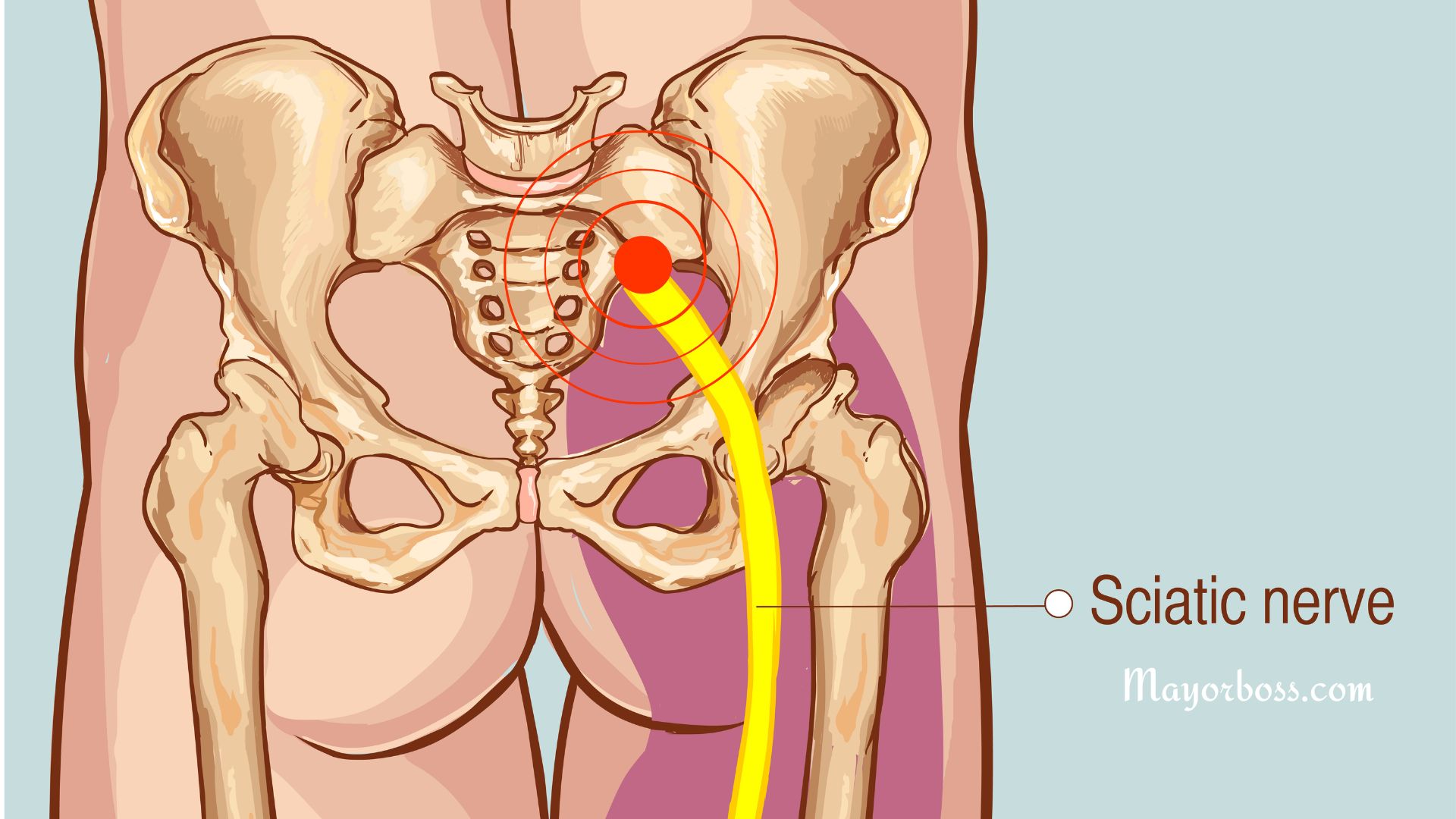Sciatica: Why and How to Treat It
Sciatica is more than just back pain. It’s a specific kind of nerve pain that can affect your lower back, hips, legs, and even your feet. If you’ve ever felt a sharp, burning pain running down one side of your body, especially after sitting or standing too long, you may be dealing with sciatica. Keep reading to learn more about it.

What Is Sciatica?
Sciatica is the name for pain that happens when the sciatic nerve is irritated, pinched, or compressed. This nerve is the largest in your body. It runs from your lower back down through your hips, buttocks, and legs. When something presses on it, like a slipped disk or bone spur, it can trigger pain that shoots down one side of your body.
You may also feel:
- Tingling or numbness in your leg or foot
- Muscle weakness
- Burning or stabbing sensations
- Pain that worsens with movement, coughing, or sneezing
The pain can range from mild to severe, and for some people, it can make daily activities difficult.
Why Does Sciatica Happen?
Sciatica isn’t a condition on its own. It’s a symptom of something else putting pressure on the nerve. Common causes include:
- Herniated or Slipped Disc: A common reason for sciatica. When the cushion between your spine’s bones slips out of place, it can press on the nerve.
- Spinal Stenosis: This is when the space inside your spine becomes narrow, putting pressure on the nerves.
- Piriformis Syndrome: A small muscle in your buttocks, the piriformis, can tighten or spasm, irritating the sciatic nerve.
- Degenerative Disc Disease: As you age, the discs in your spine wear down. This can cause nerve irritation.
- Injury or Trauma: A fall, accident, or strain can also lead to nerve compression and trigger sciatica.
- Pregnancy: Sometimes, even pregnancy or prolonged sitting can cause or worsen sciatic pain due to added pressure on the lower spine.
How to Treat Sciatica
The good news is that most cases of sciatica get better with time and care. However, treatment depends on the cause and severity of the pain. Here’s how to manage and treat it:
1. Rest and Activity Balance
It’s important not to overdo it. Avoid heavy lifting or long periods of sitting. But don’t stay in bed all day either—gentle movement helps keep the spine flexible.
2. Apply Heat or Cold
Use a cold pack during the first 48 hours to reduce inflammation. After that, warm compresses may help relax the muscles and ease pain.
3. Physical Therapy
A physical therapist can teach you exercises to stretch tight muscles and strengthen your back and core. This supports your spine and helps prevent future problems.
4. Over-the-Counter Pain Relief
Nonsteroidal anti-inflammatory drugs (NSAIDs) like ibuprofen or naproxen can reduce pain and swelling.
5. Posture Awareness
Medical professionals generally advise people to have good posture while sitting, standing, and sleeping to reduce strain on the lower back. Use chairs with proper back support and avoid slouching.
6. Prescription Medications or Injections
For more severe cases, your doctor may recommend muscle relaxants, nerve pain medications, or corticosteroid injections to reduce inflammation around the nerve.
7. Surgery (Only When Necessary)
If sciatica doesn’t improve with non-surgical treatment—or if it causes serious leg weakness or loss of bowel or bladder control—surgery may be needed to remove the pressure on the nerve.
When to See a Doctor
You should seek medical attention if:
- The pain is severe or getting worse
- It lasts more than a few weeks
- You experience numbness, tingling, or muscle weakness
- You lose control of your bladder or bowels (this is an emergency)
Frequently Asked Questions
1. How do I know if my pain is sciatica or just back pain?
Sciatica usually causes pain that starts in the lower back and travels down one leg. It often feels sharp, burning, or like an electric shock. In contrast, general back pain tends to stay in the lower back and may feel dull or sore.
2. Can sciatica go away on its own?
Yes, in many cases, sciatica improves within a few weeks with rest, stretching, and over-the-counter pain relief. However, if symptoms last longer than 4–6 weeks or get worse, you should see a doctor.
3. Is walking good for sciatica?
Yes. Gentle walking keeps your spine flexible, boosts circulation, and strengthens muscles that support your back. Just be sure to walk with proper posture and avoid long periods of sitting afterward.
4. What should I avoid if I have sciatica?
Avoid heavy lifting, bending forward repeatedly, sitting for long periods, and twisting your spine. Poor posture and high-impact activities can also make symptoms worse.
5. Can a chiropractor help with sciatica?
Yes, for some people. Chiropractors use spinal adjustments and targeted therapies to relieve pressure on the sciatic nerve. Always consult your doctor before starting any treatment, especially if your pain is severe or linked to a specific injury.






